Tennessee's 1st congressional district
Tennessee's 1st congressional district is the congressional district of northeast Tennessee, including all of Carter, Cocke, Greene, Hamblen, Hancock, Hawkins, Johnson, Sullivan, Unicoi, and Washington counties and parts of Jefferson County and Sevier County. It is largely coextensive with the Tennessee portion of the Tri-Cities region of northeast Tennessee and southwest Virginia.
| Tennessee's 1st congressional district | |||
|---|---|---|---|
.tif.png) Tennessee's 1st congressional district – since January 3, 2013. | |||
| Representative |
| ||
| Distribution |
| ||
| Population (2016) | 714,504[2] | ||
| Median income | $42,300[3] | ||
| Ethnicity |
| ||
| Cook PVI | R+28[4] | ||
Cities and towns represented within the district include Blountville, Bristol, Church Hill, Elizabethton, Erwin, Greeneville, Johnson City, Jonesborough, Kingsport, Morristown, Mountain City, Newport, Pigeon Forge, Roan Mountain, Rogersville, Sneedville, Sevierville and Tusculum. The 1st district's seat in the U.S. House of Representatives has been held by Republicans since 1881.
The district was created in 1805 when the at-large seat was divided among multiple districts.
The district's current Congressman, Phil Roe, was first elected in 2008 after defeating one-term incumbent David Davis in the Republican primary.[5] Roe announced in January 2020 that he will not run for re-election in 2020.[6]
Election results from presidential races
| Year | Office | Result |
|---|---|---|
| 2000 | President | George W. Bush 61% – Al Gore 38% |
| 2004 | President | George W. Bush 68% – John Kerry 31% |
| 2008 | President | John McCain 70% – Barack Obama 28.6% |
| 2012 | President | Mitt Romney 72.7% – Barack Obama 25.7% |
| 2016 | President | Donald Trump 76.7% – Hillary Clinton 19.7% |
Political characteristics
The 1st has generally been a very secure voting district for the Republican Party since the American Civil War, and is one of only two ancestrally Republican districts in the state (the other being the neighboring 2nd district).

U.S. Representatives Andrew Jackson (1796–1797, at large) and Andrew Johnson (1843–1853, 1st) represented this area and later served as President of the United States
Republicans (or their antecedents) have held the seat continuously since 1881 and for all but four years since 1859, while Democrats (or their antecedents) have held the congressional seat for all but eight years from when Andrew Jackson was first elected to the U.S. House of Representatives in 1796 (as the state's single at large representative) up to the term of Albert Galiton Watkins ending in 1859.
Andrew Johnson, the seventeenth President of the United States, represented the district from 1843–1853.
The 1st was one of four districts in Tennessee whose congressmen did not resign when Tennessee seceded from the Union in 1861. Thomas Amos Rogers Nelson was reelected as a Unionist (the name used by a coalition of Republicans, northern Democrats and anti-Confederate Southern Democrats) to the Thirty-seventh Congress, but he was arrested by Confederate troops while en route to Washington, D.C. and taken to Richmond. Nelson was paroled and returned home to Jonesborough, where he kept a low profile for the length of his term.[7]
Like the rest of East Tennessee, slavery was not as common in this area as the rest of the state due to its mountain terrain, which was dominated by small farms instead of plantations.[8] The district was also the home of the first exclusively abolitionist periodicals in the nation, The Manumission Intelligencer and The Emancipator, founded in Jonesborough by Elihu Embree in 1819.[9]
Due to these factors, this area supported the Union over the Confederacy in the Civil War, and identified with the Republican Party after Tennessee was readmitted to the Union in 1867, electing candidates representing the Unionist Party—a merger of Republicans and pro-Union Democrats—both before and after the war. This allegiance has continued through good times and bad ever since, with Republicans dominating every level of government. While a few Democratic pockets exist in the district's urban areas, they are not enough to sway the district.
The district typically gives its congressmen very long tenures in Washington; indeed, it elected some of the few truly senior Southern Republican congressmen before the 1950s. Only eight people have represented it since 1921. Two of them, B. Carroll Reece and Jimmy Quillen, are the longest-serving members of the House in Tennessee history. Reece held the seat for all but six years from 1921 and 1961, while Quillen held it from 1963 to 1997.
List of members representing the district
| Representative | Party | Years | Cong ress |
Electoral history | District location |
|---|---|---|---|---|---|
| District created March 4, 1805 | |||||
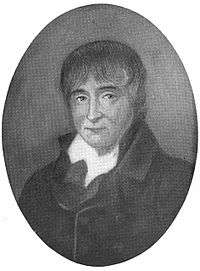 John Rhea |
Democratic-Republican | March 4, 1805 – March 3, 1813 |
9th 10th 11th 12th 13th |
Redistricted from the at-large district and re-elected in 1805. Re-elected in 1807. Re-elected in 1809. Re-elected in 1811. Re-elected in 1813. Lost re-election. |
1805–1813 "Washington district": Carter, Greene, Hawkins, Sullivan, and Washington counties |
| March 4, 1813 – March 3, 1815 |
1813–1823 Carter, Greene, Hawkins, Sullivan, and Washington counties | ||||
| Samuel Powell | Democratic-Republican | March 4, 1815 – March 3, 1817 |
14th | Elected in 1815. Retired. | |
 John Rhea |
Democratic-Republican | March 4, 1817 – March 3, 1823 |
15th 16th 17th |
Elected in 1817. Re-elected in 1819. Re-elected in 1821. Retired. | |
| John Blair | Jackson Democratic-Republican | March 4, 1823 – March 3, 1825 |
18th 19th 20th 21st 22nd 23rd |
Elected in 1823. Re-elected in 1825. Re-elected in 1827. Re-elected in 1829. [data unknown/missing] |
1823–1833 Carter, Greene, Hawkins, Sullivan, and Washington counties |
| Jacksonian | March 4, 1825 – March 3, 1835 | ||||
| 1833–1843 [data unknown/missing] | |||||
| William B. Carter | Anti-Jacksonian | March 4, 1835 – March 3, 1837 |
24th 25th 26th |
[data unknown/missing] | |
| Whig | March 4, 1837 – March 3, 1841 |
[data unknown/missing] | |||
| Thomas D. Arnold | Whig | March 4, 1841 – March 3, 1843 |
27th | [data unknown/missing] Retired. | |
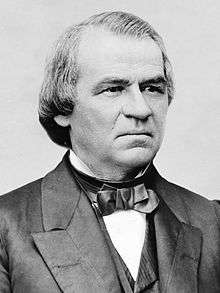 Andrew Johnson |
Democratic | March 4, 1843 – March 3, 1853 |
28th 29th 30th 31st 32nd |
Elected Governor of Tennessee | 1843–1853 [data unknown/missing]} |
| Brookins Campbell | Democratic | March 4, 1853 – December 25, 1853 |
33rd | [data unknown/missing] Died. |
1853–1863 [data unknown/missing]} |
| Vacant | December 25, 1853 – March 30, 1854 | ||||
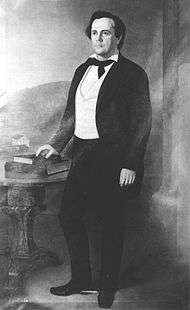 Nathaniel G. Taylor |
Whig | March 30, 1854 – March 3, 1855 |
33rd | [data unknown/missing] Lost re-election. | |
| Albert G. Watkins | Democratic | March 4, 1855 – March 3, 1859 |
34th 35th |
Redistricted from the 2nd district. Retired. | |
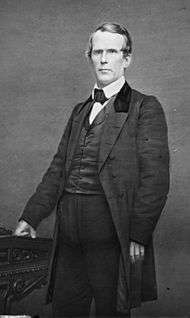 Thomas A. R. Nelson |
Opposition | March 4, 1859 – March 3, 1861 |
36th | Re-elected in 1861, but captured en route to Congress and failed to take his seat. | |
| Vacant | March 4, 1861 – July 24, 1866 |
37th 38th 39th |
Civil War and Reconstruction | ||
| 1863–1873 [data unknown/missing] | |||||
 Nathaniel G. Taylor |
Unionist | July 24, 1866 – March 3, 1867 |
39th | [data unknown/missing] Retired. | |
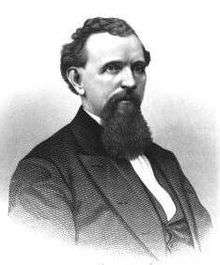 Roderick R. Butler |
Republican | March 4, 1867 – March 3, 1875 |
40th 41st 42nd 43rd |
[data unknown/missing] Lost re-election. | |
| 1873–1883 [data unknown/missing] | |||||
| William McFarland | Democratic | March 4, 1875 – March 3, 1877 |
44th | [data unknown/missing] | |
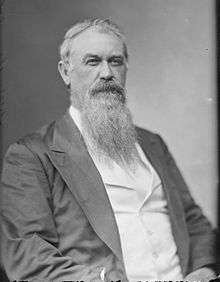 James H. Randolph |
Republican | March 4, 1877 – March 3, 1879 |
45th | [data unknown/missing] | |
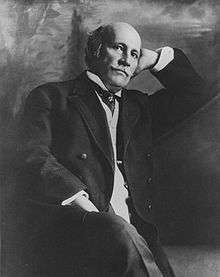 Robert L. Taylor |
Democratic | March 4, 1879 – March 3, 1881 |
46th | [data unknown/missing] | |
| Augustus H. Pettibone | Republican | March 4, 1881 – March 3, 1887 |
47th 48th 49th |
[data unknown/missing] | |
 Roderick R. Butler |
Republican | March 4, 1887 – March 3, 1889 |
50th | [data unknown/missing] | |
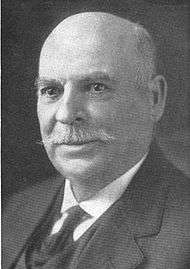 Alfred A. Taylor |
Republican | March 4, 1889 – March 3, 1895 |
51st 52nd 53rd |
[data unknown/missing] | |
| William C. Anderson | Republican | March 4, 1895 – March 3, 1897 |
54th | [data unknown/missing] | |
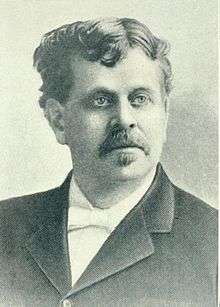 Walter P. Brownlow |
Republican | March 4, 1897 – July 8, 1910 |
55th 56th 57th 58th 59th 60th 61st |
[data unknown/missing] Died. | |
| Vacant | July 9, 1910 – November 7, 1910 |
61st | |||
| Zachary D. Massey | Republican | November 8, 1910 – March 3, 1911 |
Elected to finish Brownlow's term. Retired. | ||
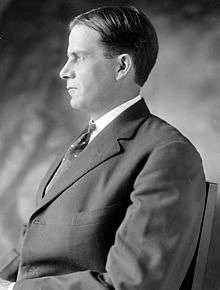 Sam R. Sells |
Republican | March 4, 1911 – March 3, 1921 |
62nd 63rd 64th 65th 66th |
[data unknown/missing] | |
| 1913–1933 Carter, Claiborne, Cocke, Grainger, Greene, Hancock, Hawkins, Johnson, Sevier, Sullivan, Unicoi, and Washington counties[10] | |||||
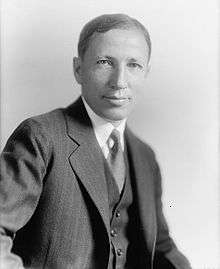 B. Carroll Reece |
Republican | March 4, 1921 – March 3, 1931 |
67th 68th 69th 70th 71st |
[data unknown/missing] Lost renomination to Oscar Lovette | |
| Oscar B. Lovette | Republican | March 4, 1931 – March 3, 1933 |
72nd | [data unknown/missing] Lost renomination. | |
 B. Carroll Reece |
Republican | March 4, 1933 – January 3, 1947 |
73rd 74th 75th 76th 77th 78th 79th |
[data unknown/missing] Retired to serve as chairman of the Republican National Committee | |
.jpg) Dayton E. Phillips |
Republican | January 3, 1947 – January 3, 1951 |
80th 81st |
[data unknown/missing] Lost renomination. | |
 B. Carroll Reece |
Republican | January 3, 1951 – March 19, 1961 |
82nd 83rd 84th 85th 86th 87th |
[data unknown/missing] Died. | |
| Vacant | March 20, 1961 – May 15, 1961 |
87th | |||
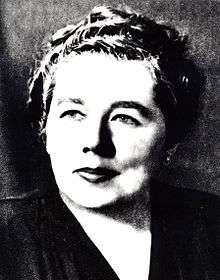 Louise Reece |
Republican | May 16, 1961 – January 3, 1963 |
Elected to finish her husband's term. Retired. | ||
 Jimmy Quillen |
Republican | January 3, 1963 – January 3, 1997 |
88th 89th 90th 91st 92nd 93rd 94th 95th 96th 97th 98th 99th 100th 101st 102nd 103rd 104th |
[data unknown/missing] Retired. | |
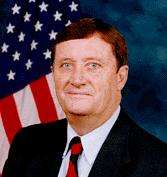 Bill Jenkins |
Republican | January 3, 1997 – January 3, 2007 |
105th 106th 107th 108th 109th |
[data unknown/missing] Retired. | |
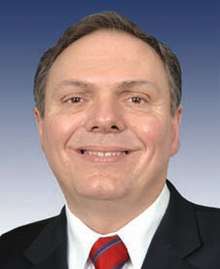 David Davis |
Republican | January 3, 2007 – January 3, 2009 |
110th | [data unknown/missing] Lost renomination. | |
 Phil Roe |
Republican | January 3, 2009 – present |
111th 112th 113th 114th 115th 116th |
Elected in 2008. Retiring in 2020. | |
Historical district boundaries
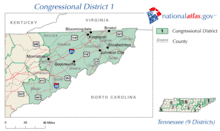
References
- Geography, US Census Bureau. "Congressional Districts Relationship Files (state-based)". www.census.gov.
- Bureau, Center for New Media & Promotion (CNMP), US Census. "My Congressional District". www.census.gov.
- https://www.census.gov/mycd/?st=47&cd=01
- "Partisan Voting Index – Districts of the 115th Congress" (PDF). The Cook Political Report. April 7, 2017. Retrieved April 7, 2017.
- "Roe defeats incumbent Davis for 1st Congressional District nomination", Johnson City Press, August 8, 2008.
- Pathé, Simone (January 3, 2020). "Tennessee's Phil Roe won't run for reelection in 2020". Roll Call. Washington, D.C. Retrieved January 3, 2020.
- ""A Patriot's Voice", Neal O'Steen, Tennessee Alumnus Summer 1997". utk.edu. Archived from the original on 2010-06-18.
- "Tennessee Encyclopedia of History and Culture: Slavery". tennesseeencyclopedia.net. Archived from the original on 2007-09-27.
- "First Abolition Publications 1A82 - Jonesborough, Tn. - Tennessee Historical Markers on Waymarking.com". www.waymarking.com.
- L.A. Coolidge (1897). "Tennessee". Official Congressional Directory: Fifty-Fifth Congress. Washington DC: Government Printing Office.
- Martis, Kenneth C. (1989). The Historical Atlas of Political Parties in the United States Congress. New York: Macmillan Publishing Company.
- Martis, Kenneth C. (1982). The Historical Atlas of United States Congressional Districts. New York: Macmillan Publishing Company.
- Congressional Biographical Directory of the United States 1774–present